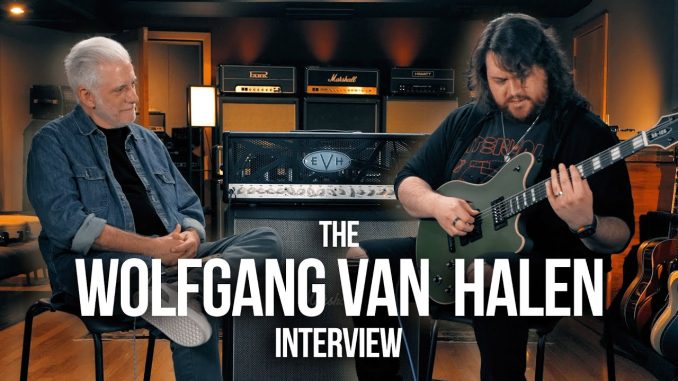
A Complicated Label: Wolfgang Van Halen, son of guitar icon Eddie Van Halen and actress Valerie Bertinelli, recently weighed in on the increasingly floated cultural phrase “nepo baby”. In a new interview with Metal Hammer, he offered a nuanced take on what it means, how it feels to be tagged with it, and when he thinks it might genuinely apply.

The Quote
“I’m one to talk, but I think the term ‘nepo baby’ is a bit unfair,” Wolfgang explains. “I think it takes the individuality of the person away … People say Jack Quaid is one of the ‘good ones’ and it’s like, who decides that?”
He continues:
“I’m not going to name names, but in some cases it does apply: the idea of people getting a leg up when they have no artistic merit or talent. All I’m trying to do is be myself and have my own artistic integrity and my own voice. I hope that people can see that.”
What He Means
- Unfairness to individuals: Wolfgang feels the term “nepo baby” can flatten the story of children of famous people, ignoring their efforts, uniqueness or hardships. He suggests the label carries a risk of dismissing a person’s own artistic journey.
- When it does apply: At the same time, he acknowledges that in some cases the label may be accurate, if someone is using parental fame as a crutch and lacks creative merit of their own. That’s the fine line he draws.
- His personal context: Wolfgang is uniquely positioned, he inherited a legacy (his father’s name and platform) yet he clearly states he is striving to build his own artistic path, one defined by his own voice and integrity.
Why This Matters
- For fans of Wolfgang’s current band Mammoth (WVH) (formerly Mammoth WVH) or of the Van Halen legacy, this interview provides a deeper look into how Wolfgang thinks about his place in the music world.
- Societally, the debate around “nepo babies” has grown in recent years, celebrity children are scrutinised, labelled, sometimes celebrated, sometimes condemned. Wolfgang’s take adds a perspective from inside that dynamic.
- It also opens up conversations about access versus talent, legacy versus individual identity, and how much advantage should define someone’s moral or artistic standing.
Quotes Worth Noting
- “I’m one to talk…” this shows he is aware of his own positionality (i.e., being the son of Eddie Van Halen) and not exempt from criticism.
- “It takes the individuality of the person away.” this is a key line: his concern that labels like “nepo baby” can reduce a person to just their family tree.
- “I’m not going to name names…” this indicates caution: he’s not calling out individuals publicly, but stating a principle. This lends some maturity to his view.
Context & Background
- Wolfgang joined Van Halen as bassist when he was a teenager, and his father’s death in 2020 marked a turning point. He has since pursued his own route with Mammoth (WVH).
- The term “nepo baby” (short for nepotism baby) has been used broadly in popular culture to describe offspring of famous individuals who enter similar fields and are perceived to benefit from their parentage, even if they also have personal talent. Wolfgang’s comments engage directly with that cultural conversation.
- His acknowledgement of both sides (unfairness + valid cases) shows that he’s not rejecting the concept outright, he’s interrogating it.
What Next For Wolfgang
Given his drive to “forge his own legacy” (as he has stated elsewhere), Wolfgang’s commentary on the term “nepo baby” suggests he remains focused on:
- Creating work that stands on its own merits.
- Being evaluated for his art rather than his surname.
- Saying, implicitly, that he hopes to be measured by creative output and true musical identity rather than family pedigree.
Final Thoughts
Wolfgang Van Halen’s remarks are both introspective and critical of the broader culture of celebrity offspring. He offers a balanced take: yes, the term can hurt individuals who are simply working hard and deserving of recognition; but yes, the term can also expose a real phenomenon of advantage without substance.
In short: he’s saying, “Don’t dismiss everybody, but don’t ignore the issue either.”
Leave a Reply